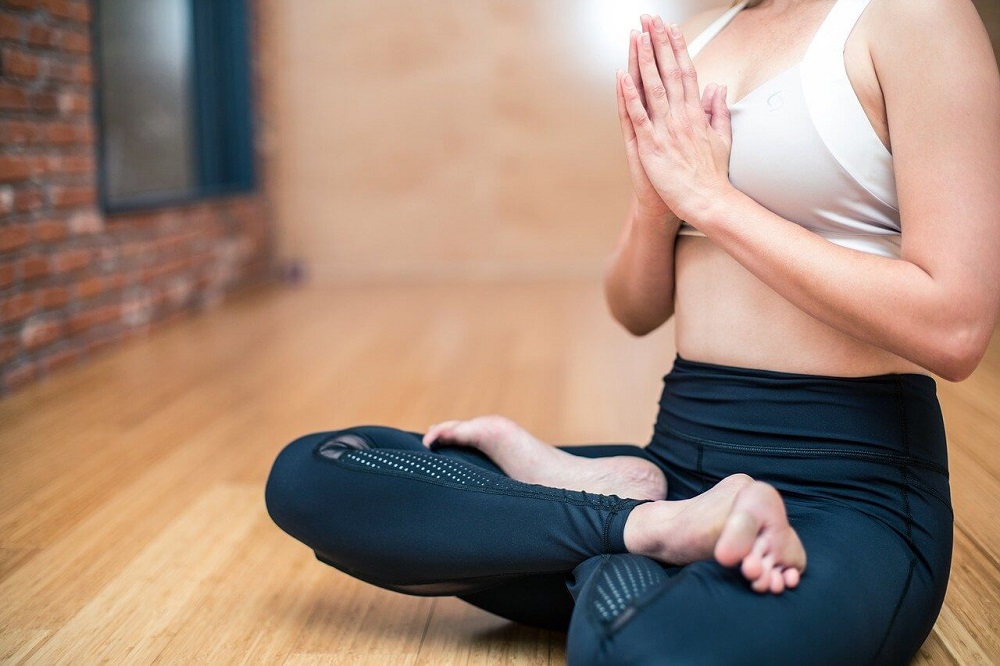During this emergency, well-being and mental balance play a fundamental role in a person's health, both personally and socially, albeit significantly diminished. In Italy, even before the current emergency, the National Institute of Health (ISS) identified " depression, schizophrenia, and neurotic and somatoform syndromes" among the most common psychiatric disorders. These are significant numbers, amounting to just under one million people; as of October 2019, specialized services assisted 851,189 individuals (67.6% of patients over 45), with 11,474,311 services provided at the local level. Today, in times of enforced social distancing, that ostracism toward mental health issues no longer makes sense. It's clear that the fear and stress generated by the emergency have only worsened the overall situation, particularly in pre-existing pathologies in patients already suffering from anxiety, stress, or depression. Therefore, we need to move beyond the usual and banal responses to psychological distress in general, which tend to dismiss it as a common ill of our society. In this article, we aim to provide some guidance for better managing stress, anxiety, and negativity, establishing some "best practices" recommended by the relevant institutions, as well as behavioral "routines" that will prove useful in our new daily lives.
The best advice from the institutions
WHO – World Health Organization
To provide concrete support for maintaining an adequate state of mental balance, the WHO (World Health Organization) has released a very useful handbook for stress management . It first emphasizes that "during a crisis, it's normal to feel sad, stressed, confused, scared, or angry. Talking about it with trusted people can help." This is followed by a comprehensive series of helpful tips for managing the crisis on a day-to-day basis.
National Council of the Italian Order of Psychologists
At the same time, the National Council of the Italian Order of Psychologists prepared a psychological handbook to help address the emergency , highlighting the importance of rationalizing the fears generated during this period and providing some good daily practices to follow.
Tips for a balanced and stress-free life
Managing your social relationships
Staying in touch with family, friends, and acquaintances is crucial for everyone. Try to identify your most important contacts , those you can truly rely on, and dedicate some time to them every day . You can call a friend, or spend some time talking to those closest to you! Talking to others is almost always the best way to deal with the worries caused by the uncertainty of these times. Often, what scares us scares others too.
Organize your own daily routine
Even the most normal routines have inevitably been shaken. The lack of that "home-work" transition can lead to a loss of direction in simple everyday tasks. It's therefore advisable to restructure your daily routine, separating your work and home environments as much as possible , and maintaining and respecting working hours that are as aligned with your usual standards as possible. In short, a call to self-discipline is a strong sign of responsibility towards ourselves. Let's organize our available time so that it can be used for multiple activities, in addition to work and rest. 
Take care of personal hygiene and cleanliness of the environment
Cleanse your body daily, especially your hands. Although social contact is almost a distant memory, let's not neglect scrupulous personal and oral hygiene. Likewise, it's equally important to take care of the enclosed spaces where we live and/or work. Ventilate rooms frequently, cleaning surfaces with suitable products and disinfectants, and avoiding direct contact with the eyes and mouth.
Maintain a healthy diet
While this precaution is always advisable, regardless of the emergency situation, for many people, eating a substantial and balanced diet certainly doesn't seem to be the norm. Therefore, let's try not to overindulge in food in general. Average energy needs, during a period of forced isolation characterized by less activity, are generally lower. Furthermore, excessive consumption of caffeine, alcohol, and tobacco is dangerous to your health. It certainly shouldn't be considered a whim, but rather an attempt to fill some "gaps."
Physical activity and outdoor exposure
We won't even bother to mention the benefits of a little healthy physical exercise on general well-being and mental balance: increased concentration, better sleep quality, and reduced tension. It's spring, so let's dedicate at least half an hour a day to sunbathing and fresh air. If leaving the house isn't allowed, spending time on the balcony or by the window will suffice.  With a little sunshine, but without overdoing it, we'll get our fill of vitamin D , an essential element for the proper functioning of the nervous system and bones. Furthermore, being outdoors allows us to change perspective, to extend our vision beyond the confines of our home. Let's breathe deeply and focus on our breathing; it will help us exorcise fears and eliminate much of the accumulated stress.
With a little sunshine, but without overdoing it, we'll get our fill of vitamin D , an essential element for the proper functioning of the nervous system and bones. Furthermore, being outdoors allows us to change perspective, to extend our vision beyond the confines of our home. Let's breathe deeply and focus on our breathing; it will help us exorcise fears and eliminate much of the accumulated stress.
Spend your free time between leisure and commitment
Let's give ourselves at least an hour a day away from smartphones and social media, to decompress at the end of the day. Reading a good book, perhaps writing notes or personal thoughts, drawing or listening to music, cooking, watching an old movie, playing games or taking a nap, exercising at home: these are all recreational activities that can restore our natural balance and ward off anxiety, fear, or simply boredom. In our free time, let's alternate these enjoyable activities with the necessary ones, typical of this period: tidying up the home, perhaps eliminating unnecessary items, helping our children with their homework, organizing our grocery shopping, and developing ideas and plans for when we can finally leave the house.
Keep the "right distance" from the news
Let's try as much as possible to avoid the constant bombardment of news and updates, to which we've been exposed for weeks. Reducing our use of social media, where inaccurate messages and information often circulate, and choosing official information channels will allow us to avoid this overload, with significant benefits for our mood.
Don't be afraid to ask for help and support if you need it.
Many regions are offering psychological support services, available to anyone experiencing psychological difficulties during this emergency. Those who had already undertaken psychotherapy before the emergency can continue their sessions remotely. For people experiencing new difficulties and needing immediate support, free services have been set up, managed by specialized personnel. Information on how to psychologically address this difficult situation is available on the national CNOP website, under #psychologistsagainstfear . Without hesitation or shame, it is advisable to seek professional help through a consultation.
You may also like
The High Rent Dilemma for Italian Students: Challenges and Solutions
The issue of high rent prices in Italy presents a daunting challenge for university students, limiting their access to suitable living accommodations. This article explores the multifaceted causes of this problem, examines its impacts on students, and proposes a variety of solutions to alleviate the financial burden on students, including governmental initiatives, university housing projects, and community-based approaches.
Decorating Your Home Without Waste: Practical Tips for the Living Room and Bedroom
Decorating your home can be an expensive undertaking, but with the right tools, you can create welcoming and functional spaces without breaking the bank. In this article, we explore practical tips for decorating your living room and bedroom while saving money, with an eye on design and quality.
The Best Sun Loungers of 2025
Exploring the most popular sun loungers of 2025, this article delves into the technical features, pros and cons, pricing, and innovative highlights, providing a detailed comparison to help consumers make an informed decision.
Air Fryers: A Kitchen Revolution or Just a Passing Fad?
Air fryers are gaining popularity as a healthy and versatile cooking tool. But do they really live up to expectations or simply a passing fad? This article explores the technology, benefits, limitations, and expert opinions on these appliances.
